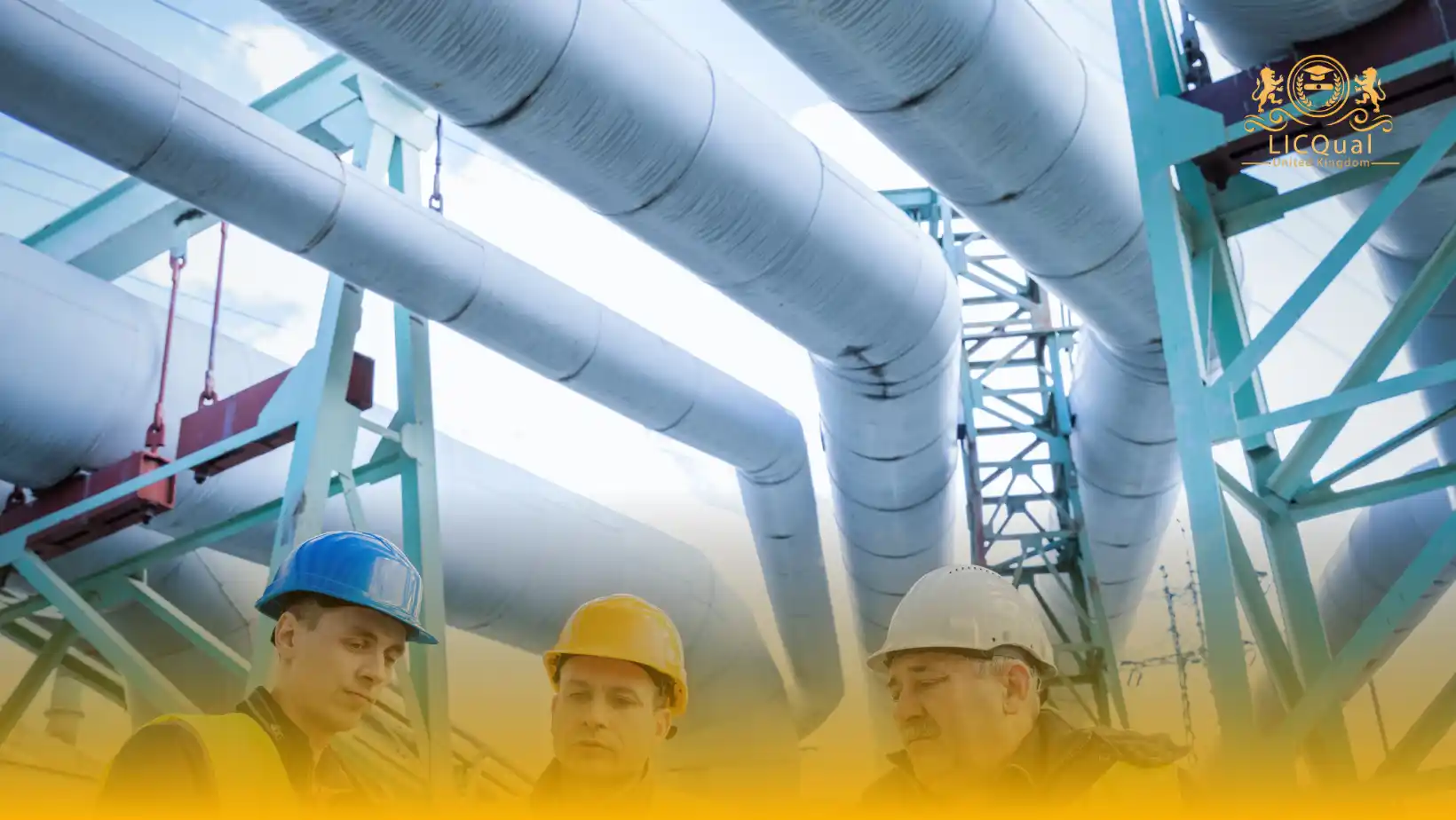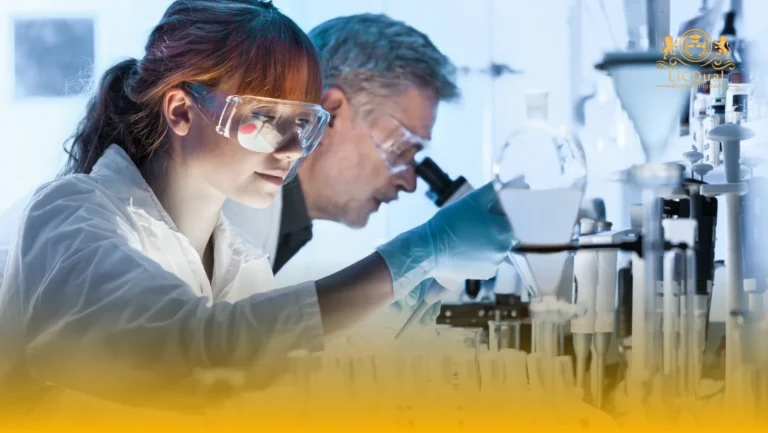Elevate your career to new heights with the LICQual Level 6 Diploma in Piping QA/QC Engineer, an advanced, globally recognized qualification tailored for professionals aiming to lead in quality assurance and quality control (QA/QC) within the piping industry.
This prestigious diploma is designed for experienced individuals seeking to master complex piping systems in high-demand sectors like oil and gas, petrochemicals, and infrastructure. Whether you aspire to become a senior QA/QC engineer, lead inspector, or project manager, this course equips you with cutting-edge skills in advanced piping design, non-destructive testing, and project quality planning.
Delivered through engaging, industry-focused modules, the LICQual Level 6 Diploma combines in-depth theoretical knowledge with practical, hands-on applications, guided by seasoned experts. You’ll explore advanced QA/QC techniques, international standards, and real-world case studies, preparing you to tackle complex challenges with confidence.
With flexible learning options—online, in-person, or blended—this program is perfect for working professionals looking to balance career and education. Take the next step toward a leadership role in piping QA/QC and unlock global career opportunities with this transformative diploma.
The LICQual Level 6 Diploma in Piping QA/QC Engineer offers a comprehensive, advanced curriculum designed to empower you with the expertise to oversee and optimize quality assurance and control in piping systems. This program covers critical topics, including advanced piping design and isometric drawing interpretation, compliance with international standards (ASME, API, ANSI, ASTM), welding inspection, non-destructive examination (NDE) techniques, and project-based quality planning.
Through practical case studies, site reporting techniques, and hands-on exercises, you’ll develop the skills to ensure piping projects meet stringent safety, quality, and regulatory requirements in industries like energy, construction, and manufacturing.
Tailored for professionals with experience in piping or quality control, this diploma is ideal for those seeking senior roles or specialized expertise in QA/QC engineering. Flexible learning formats, including online and blended options, allow you to study at your own pace, ensuring accessibility for busy professionals.
Upon completion, you’ll earn a globally respected LICQual Level 6 Diploma, validating your ability to lead high-quality piping projects and opening doors to leadership opportunities worldwide. Join this industry-leading program to become a pivotal figure in ensuring the integrity and performance of piping systems.
Course Overview
Qualification Title
LICQual Level 6 Diploma in Quality Control (QC) Piping
Total Units
6
Total Credits
120
GLH
480
Qualification #
LICQ2200542
Qualification Specification
To enroll in the LICQual Level 6 Diploma in Piping QA/QC Engineer applicants must meet the following criteria:
|
Qualification# |
Unit Title |
Credits |
GLH |
|---|---|---|---|
|
LICQ2200542-1 |
Engineering Design and Material Selection for High-Pressure Piping Systems |
20 |
80 |
|
LICQ2200542-2 |
Advanced Non-Destructive Testing (NDT) and Evaluation Techniques |
20 |
80 |
|
LICQ2200542-3 |
Project Quality Management and Compliance Auditing |
20 |
80 |
|
LICQ2200542-4 |
Risk Assessment and Control in Piping Construction |
20 |
80 |
|
LICQ2200542-5 |
Contractual, Regulatory, and Legal Aspects in QA/QC |
20 |
80 |
|
LICQ2200542-6 |
Capstone Project: QA/QC Management in a Live or Simulated Industrial Site |
20 |
80 |
By the end of this course, applicants will be able to:
1. Engineering Design and Material Selection for High-Pressure Piping Systems
- Analyze engineering design principles for high-pressure piping systems to ensure structural integrity and operational efficiency.
- Select appropriate materials for high-pressure applications, considering factors such as corrosion resistance, pressure ratings, and environmental conditions.
- Evaluate piping design specifications against industry standards (e.g., ASME B31.3, API) to ensure compliance and safety.
- Develop solutions for design challenges in high-pressure piping systems to optimize performance and quality.
2. Advanced Non-Destructive Testing (NDT) and Evaluation Techniques
- Apply advanced NDT methods, such as phased array ultrasonic testing, computed radiography, and eddy current testing, to assess piping system integrity.
- Interpret complex NDT results to identify critical defects and evaluate their impact on piping reliability and safety.
- Design and implement NDT plans tailored to specific piping projects, ensuring compliance with industry standards and project requirements.
- Optimize NDT procedures to enhance accuracy, efficiency, and safety in quality control processes.
3. Project Quality Management and Compliance Auditing
- Develop comprehensive project quality management plans to ensure consistent quality across all phases of piping projects.
- Conduct compliance audits to verify adherence to international standards, regulatory requirements, and project specifications.
- Analyze audit findings to identify non-conformities and implement corrective actions to maintain project quality.
- Lead quality management initiatives, coordinating with project teams to integrate QA/QC practices into project planning and execution.
4. Risk Assessment and Control in Piping Construction
- Perform detailed risk assessments to identify potential hazards and risks in piping construction projects.
- Develop and implement risk control strategies to mitigate safety, quality, and operational challenges in piping installations.
- Evaluate the effectiveness of risk management measures through monitoring and review processes to ensure project success.
- Apply industry best practices to integrate risk assessment into QA/QC workflows for piping construction.
5. Contractual, Regulatory, and Legal Aspects in QA/QC
- Interpret contractual obligations and regulatory requirements related to QA/QC in piping projects, ensuring compliance with legal standards.
- Analyze the impact of international codes (e.g., ASME, API, ISO) and local regulations on piping quality assurance processes.
- Develop procedures to address contractual disputes and ensure QA/QC documentation meets legal and regulatory expectations.
- Advise project stakeholders on legal and regulatory responsibilities to maintain compliance and avoid liabilities in piping projects.
6. Capstone Project: QA/QC Management in a Live or Simulated Industrial Site
- Design and execute a comprehensive QA/QC management plan for a live or simulated industrial piping project, integrating all course concepts.
- Apply advanced QA/QC techniques, including design evaluation, NDT, and risk assessment, to ensure project quality and compliance.
- Produce detailed site reports and documentation to communicate QA/QC outcomes, non-conformities, and corrective actions to stakeholders.
- Demonstrate leadership in managing QA/QC processes, coordinating with teams to achieve project objectives in a real-world or simulated environment.
This course is designed for:
- Experienced QA/QC Engineers
- Professionals who want to deepen their expertise and move into senior QA/QC or quality management positions.
- Mechanical and Piping Engineers
- Engineers involved in design, fabrication, or installation of piping systems who want to specialize in QA/QC processes.
- Project Managers and Site Engineers
- Those responsible for overseeing piping projects and ensuring compliance with international standards and client specifications.
- Senior Inspectors and Supervisors
- Personnel with practical inspection experience looking to formalize their knowledge and gain recognized credentials.
- NDT and Welding Inspectors
- Professionals involved in non-destructive testing or welding supervision seeking a broader QA/QC qualification.
- HSE and Compliance Managers
- Those aiming to integrate QA/QC procedures into safety and regulatory frameworks on industrial sites.
- Contractors and Consultants
- Independent professionals or consultants who manage or advise on piping QA/QC processes for multiple clients.
- Technical Trainers and Instructors
- Individuals who train QA/QC or engineering teams and wish to update their knowledge to deliver industry-standard instruction.
- Engineers Seeking International Opportunities
- Professionals targeting roles in global infrastructure, oil & gas, or energy projects where advanced QA/QC qualifications are highly valued.
- Those Advancing to Leadership Roles
- Individuals preparing to take on leadership, auditing, or management responsibilities in quality control environments.
Assessment and Verification
All units within this qualification are subject to internal assessment by the approved centre and external verification by LICQual. The qualification follows a criterion-referenced assessment approach, ensuring that learners meet all specified learning outcomes.
To achieve a ‘Pass’ in any unit, learners must provide valid, sufficient, and authentic evidence demonstrating their attainment of all learning outcomes and compliance with the prescribed assessment criteria. The Assessor is responsible for evaluating the evidence and determining whether the learner has successfully met the required standards.
Assessors must maintain a clear and comprehensive audit trail, documenting the basis for their assessment decisions to ensure transparency, consistency, and compliance with quality assurance requirements.







